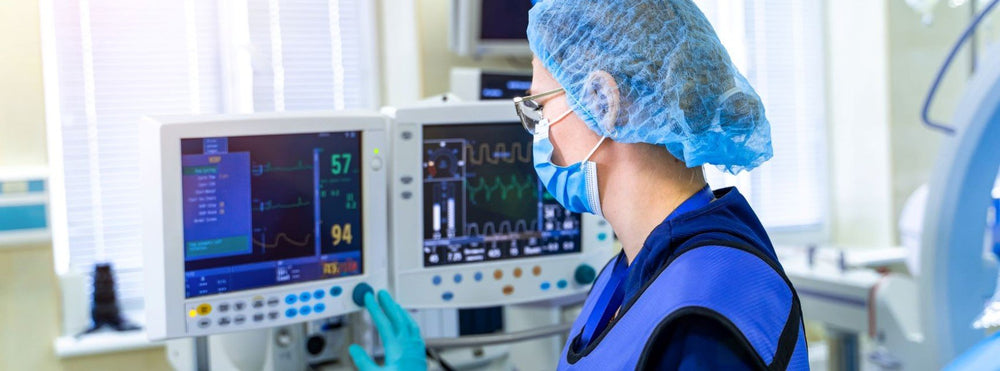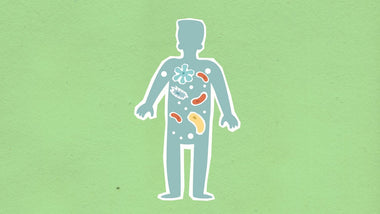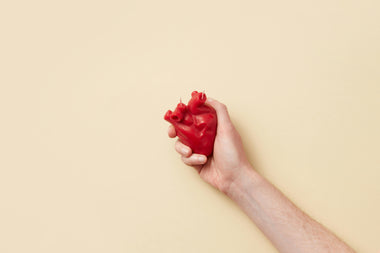When the doctor becomes the patient: Lessons learned

If you missed my Facebook LIVE chat this week, you probably don't know that a couple of weeks ago I was hospitalized with a severe illness in Costa Rica. It was a kidney stone gone very very wrong. I developed septic shock, had to be air lifted to a hospital in Miami, and came within inches of losing my life. Life changing? You bet.
And there are multiple insights I gained because of this experience. First, being on the other side of the healthcare interaction was truly illuminating. As a generally healthy person prior to this event, I had never required inpatient care. And as an outpatient physician, I have not had the need to take care of hospitalized patients for quite a few years. But wow, is it different than I remember. Here are a few of my observations:
- Being sick in the hospital is a very lonely experience. It's probably always been lonely, but during the COVID era the isolation is almost unbearable.
- Meanwhile, much of human contact has gone by the wayside. Nurses do not just come into the room. They wheel in giant monitors and keyboards and end up interacting more with their computer screens than they do with their patients. It’s all about entering the data. Physicians breeze in and out, if they come at all. So different than how it used to be – me sitting on the edge of a patient’s bed, holding their hand while I explained what was going on and what the tests were showing, making sure I answered every question.
- This focus on technology instead of on healing is burning people out. Every nurse told me there is literally no end to the charting. Throw the stress of COVID on top and you end up with a lot of healthcare providers who are isolated by their work and joy-deprived. Meaning they’re putting their longevity on the line to help you regain yours. Heroes one and all.
- On the other hand, all that technology helps drive medical care that is truly exceptional in terms of capabilities. We’ve made breathtaking progress in the last 20 years. In no small part, I owe my life to those advancements.
- Hospital food has a long way to go.
- Potassium supplements are awful. The most unpleasant experience ever. Going forward I will do everything I possibly can to avoid ever writing another potassium supplement prescription!
- Travel insurance is a must. We were fortunate in that due to the COVID pandemic Costa Rica now requires proof of travel insurance prior to entering the country. In years past we had travelled there dozens of times without ever thinking about getting something like that. So it was truly coincidental that we were insured this time. And what a blessing. I will never leave the country without it.
And now the bigger picture:
- The power of prayer and positive energy is undeniable. My chances of dying were 95% at one point – even with sound medical care – but, unbeknownst to me, I had a secret weapon. As word spread of my illness, I was literally enveloped by an incredible amount of positive energy coming not just from my family and closest friends, but neighbors, friends of friends, prayer groups, and people I didn’t even know. At one point all the nuns in South Dakota were praying for me! I will forever be humbled by the fact that so many people gave of themselves spiritually to help me. And I have to tell you, I almost felt that healing energy entering my body when I was in the hospital.
- Kindness begets kindness. When I realized my providers were not reaching out to me, I decided to reach out to them. And it was so rewarding! I got to learn about some of their struggles, we found common ground on so many topics, and we became each other’s best advocates. When my white blood cell count started to come down, it wasn’t just me who was overjoyed – my nurse Angela was jumping up and down too! We can all be the catalyst for human connections. They’re so important – and so healing.
- We all need to work hard to maximize our resilience. My new year’s resolution for this year did not go nearly far enough! As I reflect upon my experience, I realize that I was incredibly lucky to have gotten sick at a time when I was the healthiest and fittest that I had ever been in my life. In fact, at the age of 57 I was objectively healthier coming into this than I had even been in my 30s (which doesn’t say much for my health in my 30s!). For the past 3 years I had been exercising every day and eating a whole food plant-based diet with the occasional splurge. For the first time in my life I’d been consistently following my own advice! And let me tell you, it made a TREMENDOUS difference – not only to me being able to weather my healthcare storm but also to speed up recovery. I went from death’s door to home on no medications or supplemental oxygen....in just 11 days. If I’d had been a couch potato, if I’d been a smoker, if I’d been obese – I’d probably be dead or still in the ICU. Instead I had health reserves I could tap to get me through.
In the end, I emerge from these events determined to be a little tougher on myself and a little kinder to others - and I ask you to join me on this resolution reboot! That resilience part – it’s really important -- because you never know when you're going to need it. So starting today do what you can to build yourself up as much as you can so you’re not completely caught off guard if an illness ever tries to land a body blow. But that understanding part, it’s really important too. Whether in the hospital, at work or at home, we’re all struggling these days. A kind word goes a long way.
And never doubt that your positive energy could really help someone in need.

Tested & Proven Results.
- Cardiologist formulated
- Supported by over 500 publications
- Clinically-proven, in a double-blind randomized trial with Mayo Clinic and The University of Manitoba
80% of participants lowered their cholesterol in just 30 days. With just two servings per day, Step One Foods offers a proven-effective way to naturally lower LDL (bad) cholesterol.
Get heart health tips and articles like this, delivered right to your email.
New articles every week.
You may also like...

Why Two People Can Eat the Same Calories—and Only One Gains Weight

The Heart of the Matter: The Engine That Makes Whole-Body Health Possible

You don’t need to avoid foods with cholesterol…except for these


